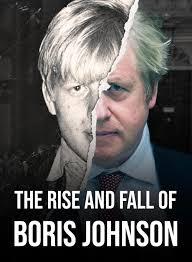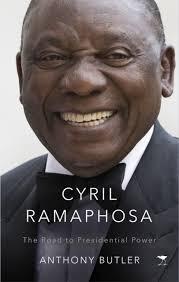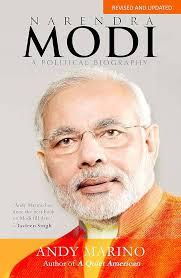In 2016, British Prime Minister David Cameron thought to lance the Euroscepticism boil once and for all, with a referendum on continued European Union membership. Shockingly, 52% voted for “Brexit” — leaving the union. Roiling British politics and policy for years after, with the governing Conservative (“Tory”) party become a cult of Brexit enthusiasm, even as its economic madness became increasingly evident.

Cameron resigned and, after the mess chewed up the next leader, Theresa May, Bounder and Brexit bulldog Boris Johnson became Prime Minister. He won a huge 2019 election victory, against the hard left Jeremy Corbyn whom no sensible person could abide. Then misconduct and lies got Johnson ousted. (Unfortunately for him, he wasn’t operating in this former colony.)
By 2024, after two more leaders, it had become clear to most Britons that the Tories were making a thoroughly feckless hash of things. Bashing immigration even while it was increasing under their watch, Prime Minister Sunak insisted on making a signature policy of a harebrained scheme to ship asylum seekers to Rwanda.

All the opposition Labour Party had to do was offer a merely normal alternative, which it did with the anodyne Sir Keir Starmer. In the July 4 election, he handed the Tories the biggest election defeat in their history, most of their parliamentary members thrown out.
We Americans can only dream of such a decisive voter repudiation of Republicans, whose conduct and lies certainly deserve it at least as much. Most British voters were able to see things clearly, and change their minds. Why can’t we?
Now over to France, where Marine Le Pen’s xenophobic racist far-right populist “National Rally” party has bedeviled politics for decades — always deemed pariahs by decent opinion. They did well in recent European parliament elections, which many voters use as a cost-free way to register a protest vote. But that prompted President Macron (who twice beat Le Pen, and whose term runs to 2027) to order a snap election for France’s parliament, three years early. This seemed unnecessarily crazy, likely to produce a new legislature more hostile to Macron’s reform measures than the old one.

France has a two-round voting system. Producing a movie we’ve seen too many times: voters in the first round shunning the reasonable, moderate, centrist option, leaving a final ugly choice between extremes in the run-offs. That is, Le Pen’s NR party and a far-left coalition. Both of their programs entail acute economic foolishness.
In the end, tactical voting and candidate withdrawals aimed at thwarting the NR did the trick; while it did gain seats, it fell far short of the feared majority, actually coming in third, behind Macron’s centrist group (which did lose seats). The result is something of a mess — no party with a majority — but not a disaster.

Next, South Africa, whose African National Congress party (Mandela’s heirs) had monopolized power through all the 30 years of democracy. Alas no one after him had Mandela’s integrity or vision. The nadir was President Jacob Zuma, whose very name is a synonym for corruption. He also instigated horrific violence when, out of office, a court tried to hold him to account. Meantime, post-Mandela ANC governments have done terribly on policy, the country is beset with problems, and they’ve played footsie with global bad guys. The current president, Cyril Ramaphosa, did manage to unhorse Zuma, and talks a good game on corruption, but has generally been far too timid in getting to grips with that and the country’s other challenges.
Given all this, the ANC was expected to finally lose its majority in the latest elections. But a feared result was a coalition with smaller extremist parties: Julius Malema’s “Economic Freedom Fighters,” neo-Communist rabble rousers and race baiters; and a new party headed by (yikes!) Zuma.
The ANC’s vote fell all the way to 40% — a very good thing — in virtually forcing Ramaphosa into coalition instead with the largest other party, the Democratic Alliance, a responsible centrist outfit. Many in the ANC hate this, seeing the DA as a redoubt of the country’s white minority. But Ramaphosa faced that down. Helped by the EFF and Zuma parties ruling themselves out of the coalition by making unreasonable demands.

Then there’s Poland, whose late 2023 elections were a real good news story. For a decade, Poland was ruled by “Law and Justice” (PiS), a right-wing populist party trying to follow the Orban playbook of co-opting all institutions to entrench its authoritarian power permanently. This included bribing voters with seemingly generous government benefits. But Poland’s voters proved smarter than Hungary’s, throwing out PiS in favor of a democracy-loving coalition led by former Prime Minister and EU leader Donald Tusk. He’s now really got his work cut out, to unwind all the tentacles PiS had wrapped around Polish society, including news media and courts.

India’s Prime Minister Modi and his Hindu-nationalist Bharatiya Janata Party have ruled since 2014. He’s done much right in goosing economic advancement. But has stoked ethnic divisiveness and engaged in anti-democratic authoritarianism. This year the BJP seemed on track for an electoral landslide. But instead — partly at least because Indians don’t fancy a dictator — Modi actually lost his parliamentary majority, humbling him and forcing power-sharing with other parties.
All those elections are encouraging for us embattled right-thinking people. Next up, though: America.
P.S. My bet for Trump’s running mate: Stefanik. Young and female. But mainly because she’s the most despicable, shameless and dishonest, thus the Trumpiest. Tim Scott rivals her in Trump ass-kissing, but still exhibits shreds of disqualifying decency; and Trump doesn’t like non-whites.
